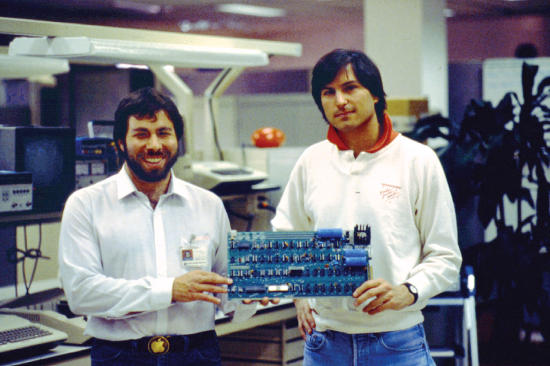A Pepper Grinder Post
Ministry for the Average Person - Part 6
Last time we saw how a passage about caring for widows, has an important message about something that should be part of the ministry of every Christian man. As a reminder, here's my translation of 1 Timothy 5:3-8:
Honor those who are truly widows. But if a widow has children or grandchildren, let these first learn to do ministry in their own households by repaying their parents or grandparents, for this is pleasing to God. But those who are widows and left all alone put their hope in God, and offer prayers and requests to him night and day. The widow who lives a life of self-indulgence is dead, even while she lives. Command such widows to be above reproach. If anyone doesn't provide for his relatives, and especially the members of his household, he has denied the faith, and is worse than an unbeliever.
So how much support are we required to give? If Aunt Agatha is having trouble making her car payments, do I need to get a second job? Here I think we can apply something Paul says in the next chapter of 1 Timothy:
But if we have food and clothing, we will be content with that. (1Timothy 6:8, NIV)
We could even go a little further and add housing into the mix. In the U.S., at least, there are probably not that many people whose extended family members cannot feed or clothe themselves if they handle money responsibly. The real application for American men, as I see it, is that we should be the ones supporting our families. I don't think we need to feel guilty if we can't provide everything everyone wants, but I don't believe that just abdicating the role of primary wage-earner is an option for a Christian husband and father.
 As I said when we talked about women, I'm not trying to establish some legalistic code. I am sure there are situations where having the man be the sole wage-earner is not possible. The problem I have is how quickly most Christians seem to jump to this conclusion. "My wife would have loved to stay home with the kids until they got to school age, but we just couldn't afford it." You couldn't? What does that mean? Does it mean that you couldn't have afforded some cheap rental apartment, eating a diet high in cheap foods like beans and rice, and clothes purchased at Salvation Army? You couldn't?
As I said when we talked about women, I'm not trying to establish some legalistic code. I am sure there are situations where having the man be the sole wage-earner is not possible. The problem I have is how quickly most Christians seem to jump to this conclusion. "My wife would have loved to stay home with the kids until they got to school age, but we just couldn't afford it." You couldn't? What does that mean? Does it mean that you couldn't have afforded some cheap rental apartment, eating a diet high in cheap foods like beans and rice, and clothes purchased at Salvation Army? You couldn't?
Or do you really mean you wouldn't? So often it seems to me that people are simply not willing to make the sacrifices necessary to have the woman at home. I think when the woman is unwilling to stay at home, it is a sad thing, and that both she and her children are missing out on something really good. But what really breaks my heart is when the woman wants to stay home, and her husband won't let her. If that husband is a Christian, I think he is in direct disobedience to the Bible.
When speaking of the question of whether it is Biblical or not to have women pastors, there are two broad camps. Egalitarians believe that it is just as Biblical for a woman to be a pastor as for a man. Complementarians believe that women and men have different roles in the church, which complement each other. I view the teaching we've been studying about ministry for women and men as presenting a complementarian vision of home life. Rather than presenting a view where men and women have the same role (except for childbearing, which we men haven't quite figured out how to do yet), I believe the Bible paints a picture of a husband and wife performing two different roles, which form a whole that is much better than either could have done on his or her own.
Just as the curse on Adam after the Fall of Man related to his work to provide food for the family, so men are tasked with providing the physical raw materials needed to sustain life. They have to provide the stuff needed to make food, clothing, and shelter. In a modern society, this will almost always mean earning money. The job of the man is nitty-gritty and intensely practical.
The job of the woman is more subtle and nuanced. Woman take those raw materials and make them into something beautiful. They too take care of the day-to-day physical demands of running a household, but they also make that roof and four walls into a home, where there is love, nurture, support, and beauty. They pursue relationships that keep life from being just a slog to pay the bills, mixed in with passive entertainment.
Right now, I'm listening to Walter Isaacson's book, Steve Jobs. So, please forgive me for interjecting a story about a fictional company called Peach Computer in the early days of the personal computer revolution.
 Peach Computer was founded by two young men, one a brilliant programmer, the other a brilliant electrical engineer, both named Dave. What set Dave and Dave apart from other nerdy young men in Silicon Valley was their appreciation of artistic beauty. They wanted to create a computer that was excellent in terms of hardware, and whose operating system allowed it to do amazing things with that hardware. They also wanted the computer to have a graceful look. They wanted it to have an abundance of gorgeous fonts, and beautiful graphics. They wanted everything about the computer from the case to the graphical interface to be pleasing to the eye.
Peach Computer was founded by two young men, one a brilliant programmer, the other a brilliant electrical engineer, both named Dave. What set Dave and Dave apart from other nerdy young men in Silicon Valley was their appreciation of artistic beauty. They wanted to create a computer that was excellent in terms of hardware, and whose operating system allowed it to do amazing things with that hardware. They also wanted the computer to have a graceful look. They wanted it to have an abundance of gorgeous fonts, and beautiful graphics. They wanted everything about the computer from the case to the graphical interface to be pleasing to the eye.
Dave and Dave, smart as they were, knew that they were not artists. So they decided to create a company that had about the same number of people working on the artistic side of the computer as were working on the engineering and programming side. These teams would often need to work very closely together. It was critical that the programmers take very seriously the suggestions of the graphic designers. To avoid deadlock, Dave and Dave decreed that if the artistic side and the engineering side, after listening carefully to each other's points of view, still could not come to an agreement, the engineers and programmers would have the final say.
After some early models which enjoyed modest success, Peach Computer released The Freestone. It was a phenomenal success. Hardware nerds raved about the speed and capabilities of the computer. Artsy types loved the aesthetic appeal of the fonts, graphical interface, and even the computer case. In time, Peach Computers came to dominate the graphic design field for precisely this reason.
For a time, everyone at Peach was happy. When the company went public, many of the company's young employees became millionaires overnight. As time went on, those on the artistic side started to feel resentful. The engineers and programmers seemed to get more credit and recognition than the designers. Those on the artistic side started saying things like, "Who says designers can't program?" or "I can make just as good a motherboard as an engineer!" The company didn't want to stifle its employees, so it let the designers who wanted to, switch to more technical jobs.
Most of the artists working for Peach were very bright and motivated. As they moved into programming and engineering, they often did quite well, sometimes better than many of the programmers and engineers. However, as more and more artistic types switched to engineering jobs, the creative side of the business suffered.
Peach released its first new model since the internal migrations had taken place, the Clingstone. Nerds loved it. They said it was faster and more powerful than the Freestone. The general public and the artistic community, however, were less enthusiastic. They said the case looked boxy. They noticed there were fewer fonts and colors, and that often, while performing some simple task, a command window would pop up with arcane text. If you knew all the commands, you could do amazing things with the machine, but most people refused to upgrade from the Freestone after getting a demo of the Clingstone.
My point is this: when we switch to a model where men and women have more similar roles, we lose something intangible but crucial in our homes and in our society.
That said, I don't think we should have too narrow a view of what is women's work and what is men's. My mother, who was not a Christian and was fairly politically liberal, believed that it was a woman's job to cook the meals. However, at this point in my wife's and my married life, my daughters and I cook more than my wife does. I don't think we need to be slavish, but the general principle still remains that in a Biblical worldview, a woman is much more than a man with a uterus.
 If you have read this and the previous two posts and come away thinking I believe that women who work outside the home or men who don't are going to hell, then either I haven't expressed myself well enough or you haven't read well enough. I do not think this is a matter of salvation. What saddens me is how many Christians do not even consider following this pattern. If you feel a strong revulsion to the idea that men rather than women should be the primary wage earners, I'd like you to ask yourself why. Is it fear of not having enough money? Is it fear of what others would think of you? Is it something else? Whatever it is, I'd encourage you to think objectively about whether your reason for not wanting to follow this model is a biblical one. Perhaps you would say you are not convinced that what I have outlined IS a biblical model. Fair enough, but ask yourself whether you examined the Bible objectively, or looked, hoping to find ammunition for what you wanted to do.
If you have read this and the previous two posts and come away thinking I believe that women who work outside the home or men who don't are going to hell, then either I haven't expressed myself well enough or you haven't read well enough. I do not think this is a matter of salvation. What saddens me is how many Christians do not even consider following this pattern. If you feel a strong revulsion to the idea that men rather than women should be the primary wage earners, I'd like you to ask yourself why. Is it fear of not having enough money? Is it fear of what others would think of you? Is it something else? Whatever it is, I'd encourage you to think objectively about whether your reason for not wanting to follow this model is a biblical one. Perhaps you would say you are not convinced that what I have outlined IS a biblical model. Fair enough, but ask yourself whether you examined the Bible objectively, or looked, hoping to find ammunition for what you wanted to do.
I would be happy if everyone who read these posts would lay at God's feet and say something like, "I will do and believe ANYTHING you want." I believe that if the church of Jesus Christ were saying that, and were often living in a radically different way as a result, the effect on our world would be enormous.
- Pepper
Posted 2017-04-20
*Photo Credits: Salvation Army from twincities.com, Steve Wozniak and Steve Jobs from thenextweb.com
